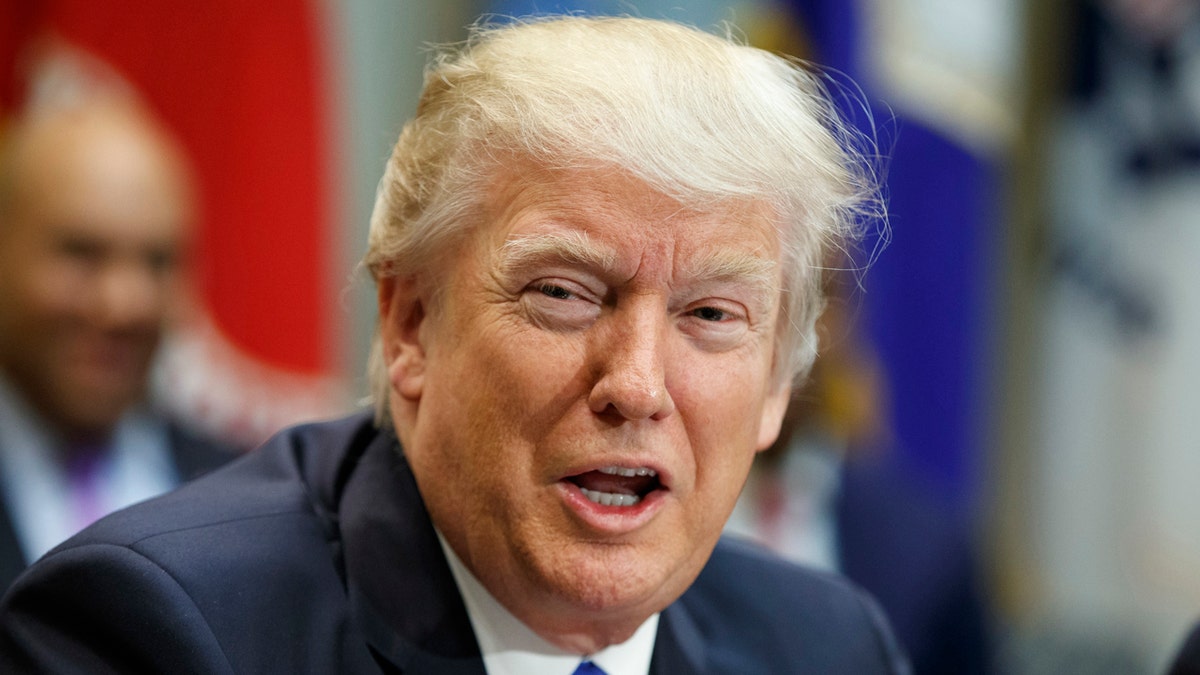
Feb. 1, 2017: President Donald Trump speaks during a meeting on African American History Month in the Roosevelt Room of the White House. (AP)
President Trump takes a prostate drug marketed to promote hair growth, the 70-year-old billionaire’s longtime physician revealed in a series of wide-ranging interviews published Wednesday by The New York Times.
Dr. Harold Bornstein listed two other medications that Trump takes, including an antibiotic to control rosacea, a common skin condition, and a statin for elevated blood cholesterol and lipids.
“He has all his hair,” Bornstein, whose practice is on Manhattan’s Upper East Side, told the Times, adding that he, too, takes the drug to maintain his own shoulder-length locks.
According to Bornstein, the president also takes baby aspirin daily to reduce the risk of a heart attack and his medical care is “exactly up to date,” the Times reported. Trump has been a patient of Bornstein’s since 1980, according to the Times, and was under the care of Bornstein’s father before then.
Harold Bornstein’s first foray into the national spotlight came after he released four paragraphs scant on medical information pertaining to the then-presidential hopeful’s health, declaring simply that Trump would be “the healthiest individual ever elected to the presidency.”
While the White House declined to comment on 69-year-old Bornstein’s most recent remarks, the revelation that Trump takes Finasteride, which is marketed as Propecia to treat male-pattern baldness, quells some rumors about potential prostate issues.
Months before the election, Bornstein released a second report on Trump’s health, a more comprehensive account which revealed very low levels of prostate specific antigen (PSA). Speculation mounted that the president’s low PSA levels indicated he had been treated for an enlarged prostate or prostate-related issues, but a drug like Finasteride would influence PSA measurements. Bornstein confirmed to the Times that Trump’s PSA level is low because of Propecia.
Bornstein told the Times he has had no contact with Trump since he became president, though he was invited and attended the inauguration. He said the White House has not asked for copies of Trump’s medical records, and officials would not tell the Times whether Bornstein was still the president’s physician.
Bornstein granted the Times the interviews after being asked to clarify his role in Trump’s health care.